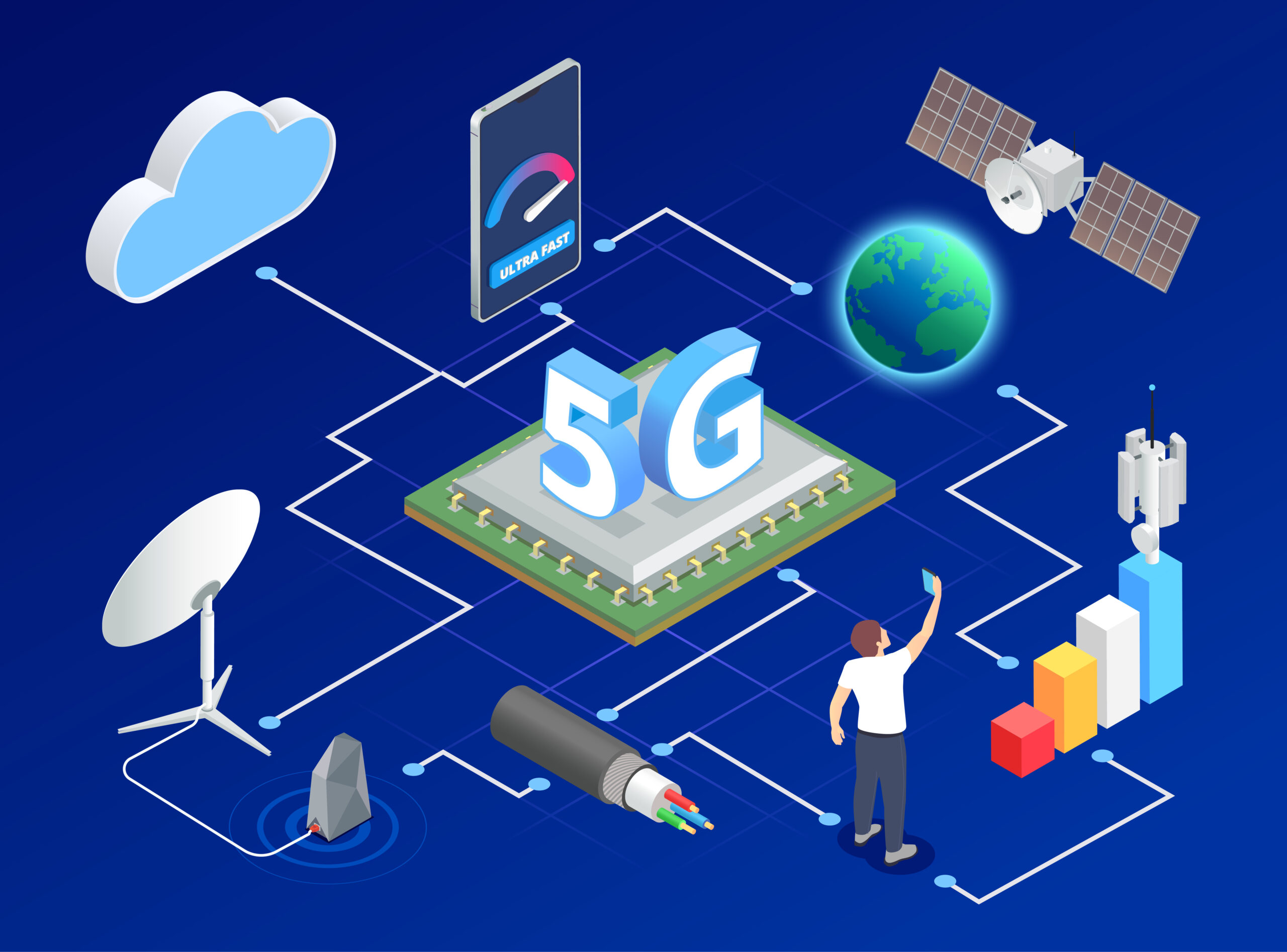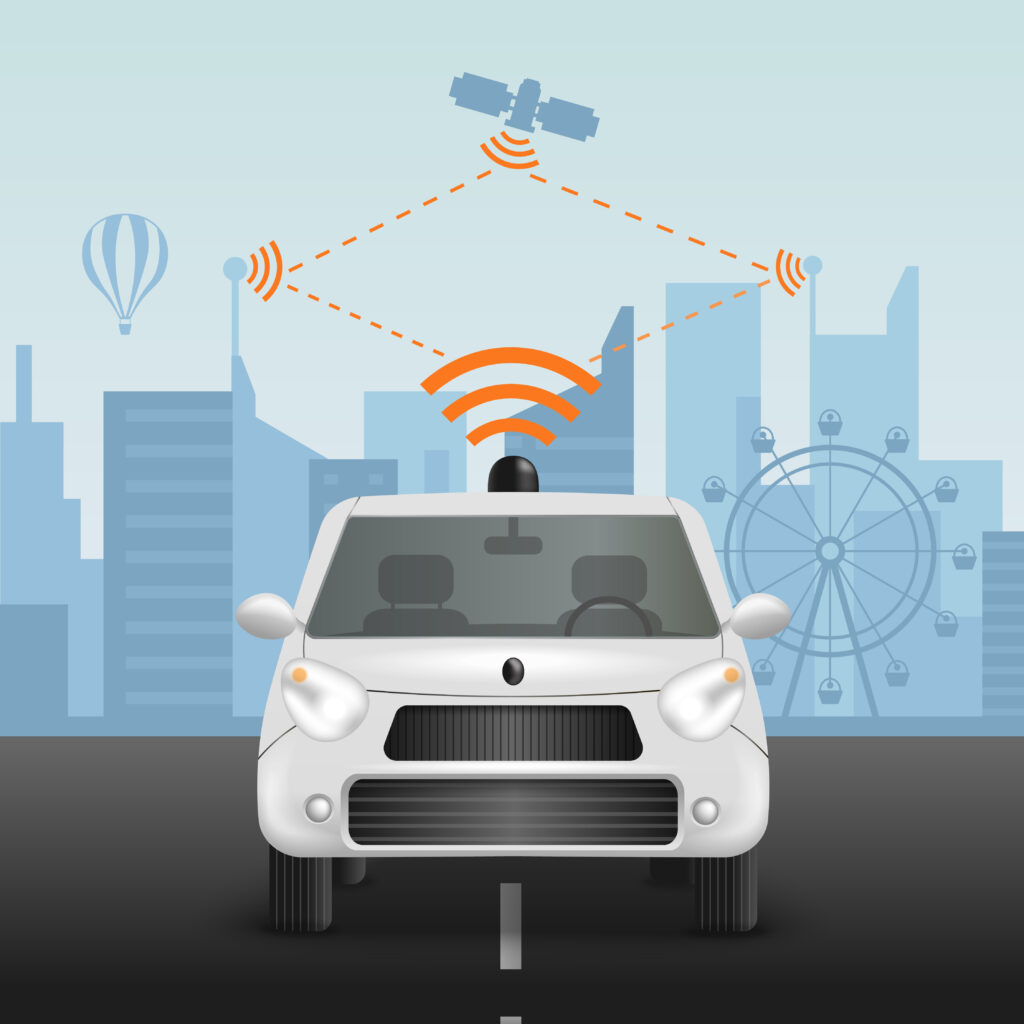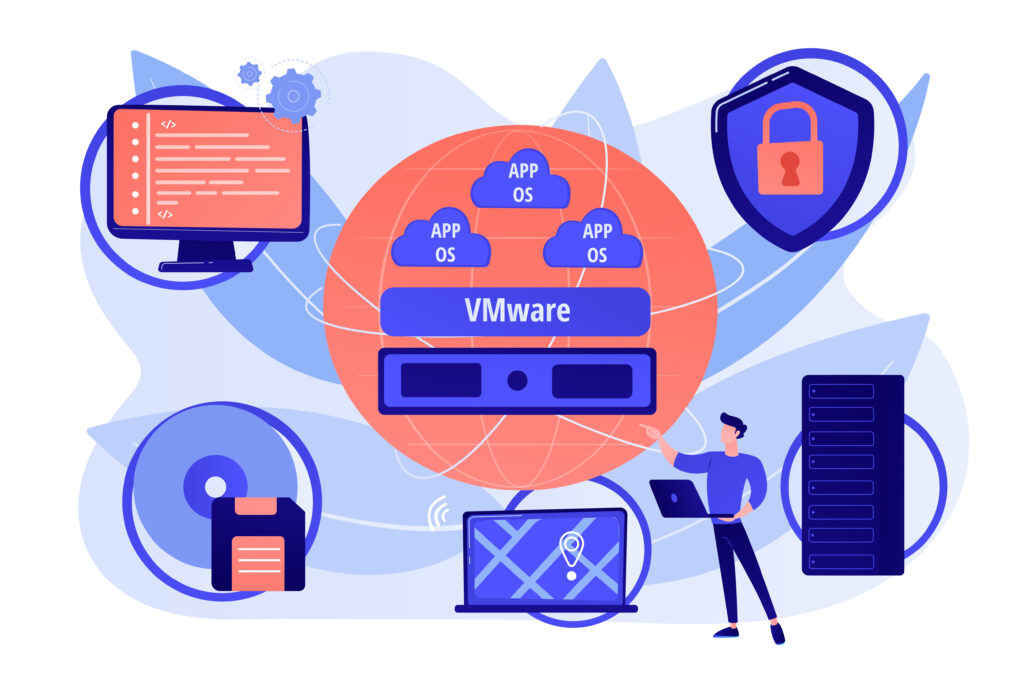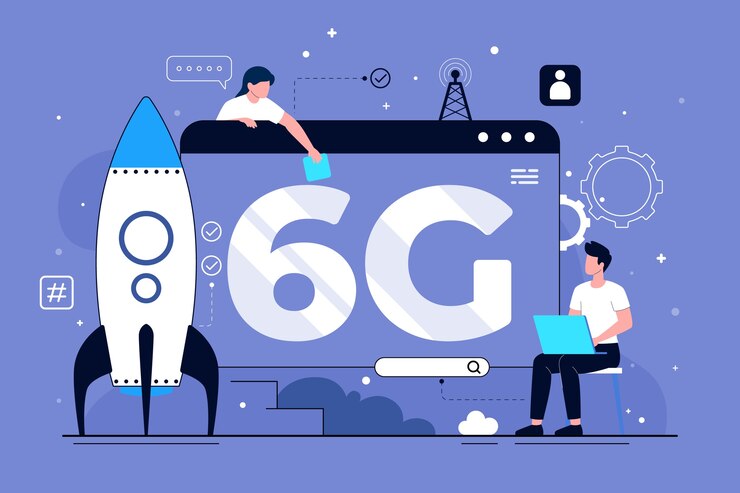In the world of ever-evolving technology, 5G stands as a beacon of promise, poised to transform the way we connect, communicate, and conduct our lives. With its lightning-fast speeds, low latency, and vast potential for innovation, 5G technology is set to revolutionize the way we interact with the digital world. In this article, we will delve into the world of 5G, exploring its impact on various sectors and discussing the future it holds.
What is 5G Technology?
- Definition: 5G, short for the fifth generation of wireless technology, is the latest and most advanced iteration of cellular networks.
- Speed and Latency: One of the most significant advantages of 5G is its remarkable speed, which can reach up to 100 times faster than 4G. Moreover, it offers significantly lower latency, reducing the time it takes for data to travel from source to destination.
- Frequency Bands: 5G utilizes a wide range of frequency bands, including low, mid, and high-frequency spectrums. This diversity allows it to cater to various use cases, from IoT devices to high-bandwidth applications.
The Impact of 5G on Different Sectors
1. Healthcare
5G technology has the potential to revolutionize healthcare in numerous ways:
- Telemedicine: With 5G’s low latency and high-speed connectivity, doctors can perform remote surgeries and consultations with unparalleled precision and real-time responsiveness.
- IoT Healthcare Devices: Medical devices equipped with 5G connectivity can transmit data instantaneously, allowing for better monitoring and management of patients’ health.
- Healthcare in Remote Areas: 5G can bridge the healthcare gap in remote areas, enabling access to high-quality healthcare services where they were previously unavailable.
2. Education
The education sector is also set to benefit from 5G technology:
- Remote Learning: 5G enables seamless and high-quality video conferencing, making remote learning more engaging and effective.
- Augmented Reality (AR) and Virtual Reality (VR): With 5G’s low latency, AR and VR applications can be used for immersive and interactive learning experiences.
- Global Access: 5G can help extend educational opportunities to underserved areas, ensuring more equitable access to education.
3. Transportation
5G will transform the way we move from one place to another:
- Autonomous Vehicles: 5G’s low latency is crucial for real-time communication in autonomous vehicles, ensuring safety and efficiency on the road.
- Smart Traffic Management: 5G enables real-time traffic monitoring and management, reducing congestion and improving transportation efficiency.
- Enhanced In-vehicle Entertainment: With high-speed 5G connectivity, passengers can enjoy seamless streaming and connectivity on the go.
4. Entertainment
Entertainment experiences are set to become more immersive and accessible:
- Ultra-High Definition (UHD) Streaming: 5G allows for flawless UHD streaming, enhancing the quality of video content.
- Cloud Gaming: 5G’s low latency makes cloud gaming a reality, enabling gamers to play high-end games on a variety of devices.
- Augmented and Virtual Reality: AR and VR applications for entertainment will thrive with 5G, offering users truly immersive experiences.
5. Manufacturing
The manufacturing industry will undergo a significant transformation:
- Smart Factories: 5G enables the real-time monitoring and control of machinery, leading to increased efficiency and reduced downtime.
- Predictive Maintenance: IoT devices connected via 5G can predict when equipment is likely to fail, allowing for proactive maintenance.
- Supply Chain Optimization: 5G facilitates real-time tracking of goods in transit, improving supply chain visibility and efficiency.
The Road Ahead for 5G
As 5G technology continues to evolve, there are several key developments and trends to watch for:
- Expanded Coverage: Over the coming years, 5G networks will expand their coverage, reaching more rural and remote areas.
- Integration with IoT: 5G’s integration with the Internet of Things (IoT) will lead to the proliferation of smart devices and applications.
- Edge Computing: Edge computing, combined with 5G, will enable faster data processing and reduce the load on centralized data centers.
- Industry-Specific Applications: 5G will increasingly be tailored to specific industries, optimizing its capabilities for unique use cases.
- Cybersecurity: With the growth of 5G, ensuring the security of networks and connected devices will be a top priority.
Conclusion
In conclusion, 5G technology is poised to revolutionize the way we connect and interact with the digital world. Its incredible speed, low latency, and versatility make it a game-changer across various sectors, including healthcare, education, transportation, entertainment, and manufacturing. As 5G networks continue to expand and evolve, we can expect even more transformative innovations that will shape the future of connectivity. Embracing the possibilities of 5G, we stand on the brink of a new era where connectivity knows no bounds, and the way we live, work, and play will be forever changed.



